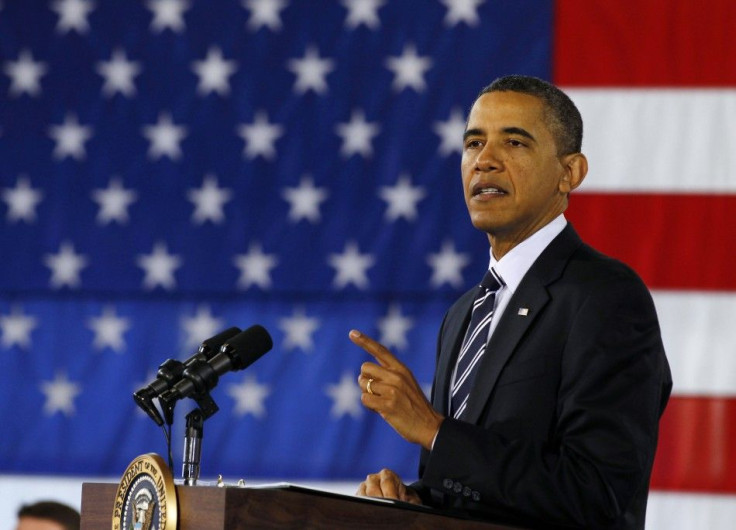Obama's Plan To Break The Republicans Takes Shape

For a presidential campaign that ostensibly presents voters with a critical choice about the country's future, the Obama-Romney slugfest has been light on details of what a President Romney or a second Obama term would mean.
Much of what has been discussed -- aside from Romney's base-pleasing vow to repeal the Affordable Care Act and the Dodd-Frank financial reform bill -- has come in the form of familiar political platitudes: shrink the deficit, grow the economy, bolster energy production.
As is typical in presidential campaigns, the candidates don't discuss how they will deliver on their lofty promises. Romney has sought to seize Obama's mantle as an agent of change who can transcend party politics, but there is little evidence that he could do anything to alter the gridlock in Washington.
But a few days ago, in an interview with the Des Moines Register, Obama tipped his hand. The interview was initially off the record, which allowed the president to display a candor that is usually absent on the campaign trail or in presidential debates. In explaining why he deserved the newspaper's endorsement, President Obama revealed his strategy for shattering the unrelenting Republican opposition that has helped define his tenure.
"I believe in the first six months we are going to get a deal," he said.
Let's step back for a moment. Last summer represented one of the low points of Obama's presidency. A bruising battle over raising the nation's debt ceiling paralyzed Washington, with Republicans demanding that the routine procedure come with some significant deficit reduction. But the GOP's refusal to include any new revenue -- in other words, higher taxes -- in such a deal thwarted Obama's attempt to strike a sweeping compromise.
Ultimately, Obama was forced to settle for a deal he reportedly loathed: a bipartisan "super committee," composed of 12 lawmakers, would draw up a blueprint for more than $1 trillion in deficit reduction. If they failed, an automatic "sequester" for the same amount would kick in, forcing over $1 trillion in cuts from defense and domestic spending.
At the time, this looked like a defeat for Obama. His effort to forge a "grand bargain" with Speaker of the House John Boehner had collapsed (pushback from Democrats over potential cuts to entitlements didn't help). There was a sense that Obama had again fallen short, as he had in December of 2010, when he agreed to extend the soon-to-expire Bush tax cuts.
But all of a sudden, the long game seems to favor Obama, because the Bush tax cuts are set to expire yet again at the end of the year, just as the first round of sequester cuts is set to kick in. That confluence of massive budgetary cuts could be devastating: The Congressional Budget Office (CBO) has warned that, if the changes proceed as the law currently dictates -- meaning, if Congress doesn't act -- the U.S. economy could again fall into a recession.
And that gives Obama something he has seemed to lack in clashes with Republicans: leverage. The White House has steadfastly refused to back down from the sequester cuts, saying Congress cannot back down from the deal it passed. But the administration has little appetite to see the massive cuts take effect. Obama admitted as much in the third presidential debate, when Romney tried to tie the president to the looming defense cuts.
“The sequester is not something I’ve proposed -- it’s something Congress has proposed," Obama replied. "It will not happen.”
Neither does Obama want to see all of the Bush tax cuts sunset, raising taxes on middle-class Americans -- all along, he has supported keeping most of the reductions in place but repealing those for the top earners. Republicans have opposed that ferociously, warning against burdening "job creators" with a higher tax bill.
But President Obama believes that, should he secure a second term, he will have the upper hand. If they want to avert an economic catastrophe, Republicans will need to make a deal.
"In the short term, the good news is that there's going to be a forcing mechanism to deal with what is the central ideological argument in Washington right now, and that is: How much government do we have, and how do we pay for it?" Obama said to the Des Moines Register.
"It will probably be messy," Obama said. "It won't be pleasant. But I am absolutely confident that we can get what is the equivalent of the grand bargain I've been offering to the Republicans for a very long time."
© Copyright IBTimes 2024. All rights reserved.




















